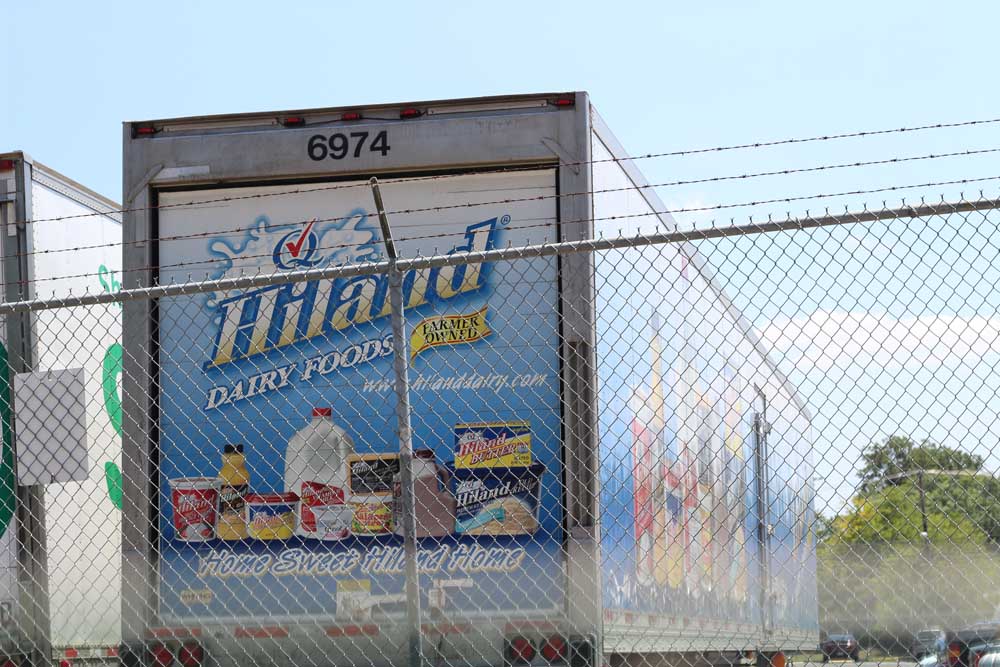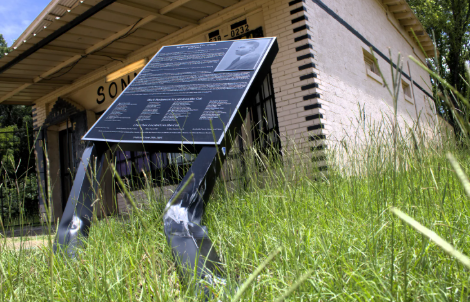New incentives approved for Hiland Dairy’s expansion in Tyler
Published 1:30 pm Friday, December 21, 2018

- The Tyler location of Hiland Dairy Foods Co. at 200 N. Fuller Ave. is seen from E. Locust St. on July 24, 2018 in Tyler. (Tyler Morning Telegraph File)
New incentives are on the way for Hiland Dairy for an expansion underway at its plant just outside of downtown Tyler.
The Tyler City Council has approved the company for cash incentives from a business development program, and has endorsed an effort to help the company get refunds on state sales and use taxes.
Trending
The new incentives are in addition to the street closure the City Council approved earlier this year to facilitate the expansion, and the five years of tax abatements that the city of Tyler, Smith County and Tyler Junior College governments approved earlier this year.
Hiland Dairy, which purchased dairy operations from Brookshire Grocery Co. in 2017, has been planning an expansion of its plant at 200 N. Fuller Ave., south of East Locust Street. The company purchased three lots to the north and will expand the plant onto one larger lot.
On Dec. 12, the Tyler City Council approved an agreement to let Hiland Dairy receive $200,000 in cash incentives through a city program called Chapter 380, designed to promote economic development in the city.
Hiland Dairy will receive $25,000 by the end of 2018 and $43,750 per year through 2022. The company is required to retain its 74 employees in 2018; add 40 employees in fiscal year 2019; add 30 employees in fiscal year 2020; add 10 employees in fiscal year 2021; and reach full employment of 74 retained jobs and 80 additional jobs in fiscal year 2022.
“Hiland Diary is an excellent project for these incentives because they’re providing further reinvestment into our community with their expansion and improvement projects that will generate up to $45 million in investment,” said Heather Nick, the managing director of planning and economic development for the city of Tyler.
“They are retaining 74 jobs and creating up to 80 new jobs, and these are high-paying jobs with average pay of $50,000,” Nick said. “That’s great for our community. We like to see that we have companies that are retaining those high-quality jobs and employees through offering those competitive wages.”
Trending
Nick said the money for the incentive comes from a city fund that contains revenue from water and sewer fees. She said the reason is that development projects increase the amount of revenue going into that fund from water and sewer fees. Hiland Dairy’s contract also requires the company to maintain service through the city.
Previous companies that have received similar incentives through the city’s Chapter 380 program are Fresenius, which opened a new facility on Earl Campbell Parkway, and the Retail Connection, which developed the Village at Cumberland Park, according to Nick.
In November, the Tyler City Council passed a resolution recommending that the state designate the project as a State Enterprise Zone. The state program allows companies in economically distressed areas of Texas to get refunds on state sales and use taxes.
Felecia Herndon, the vice president of finance for the Tyler Economic Development Corp., said she has been preparing the final application for a State Enterprise Zone designation for a March 1 deadline.
Herndon said the application is for a maximum of $2,500 per job, or $385,000. The money would be provided as reimbursements for the cost of sales and use taxes on equipment and building materials as part of the expansion.
“They will pay the tax upfront, and if they are in compliance with the guidelines as set forth in the Enterprise Zone (program) they’ll get reimbursed by the state,” Herndon said. While the sales tax locally totals 8.5 percent, the company only would receive a reimbursement for the portion that goes to the state, she said.
Tom Mullins, the CEO of the Tyler Economic Development Corp., highlighted the location of the plant, east of downtown Tyler, an area that he said has lagged behind the rest of the city, such as the southern part, in terms of growth.
Mullins said many manufacturing and packaging plant jobs that were once along the corridor of Erwin Street have gone away. Today, more than half of the households in the neighborhood are considered low- to moderate-income, and the company will need to hire some low- and moderate-income workers under the state program.
“I am so impressed with this company,” Mullins said. “They are very community-minded. They’ve gotten involved in supporting a variety of nonprofits … and that always tells me about the corporate culture of a company.”
TWITTER and INSTAGRAM: @_erinmansfield






